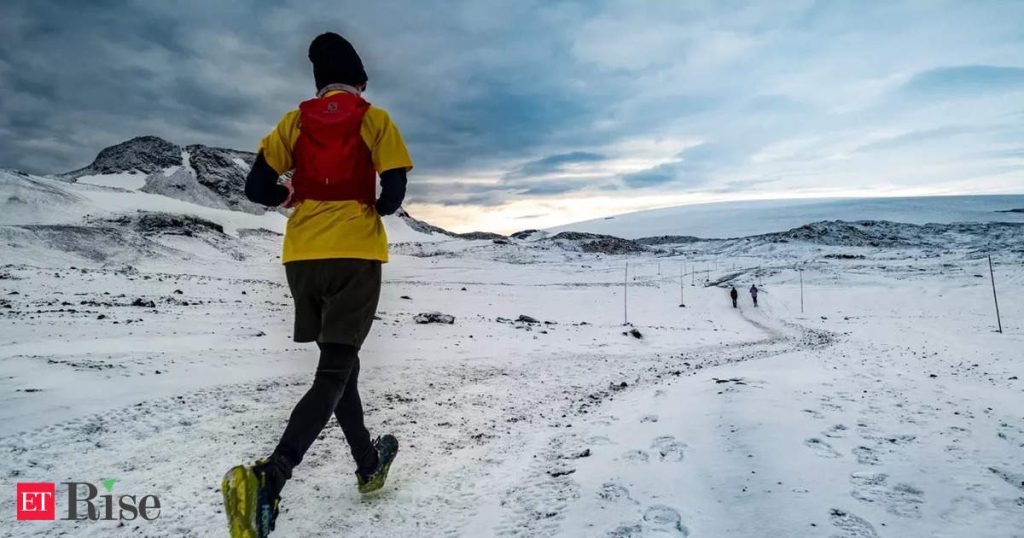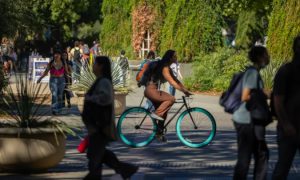The Economic Times (ET): How did the idea of Active Holiday Company come to you and what did you want to achieve?
Gauri Jayaram (GJ): I started running in 2008 when I was still part of the corporate world. In 2011, I happened to be in London on the marathon weekend. Race registrations for the next year opened a day after the race and that was when I realised how oversubscribed the event was – the only way to get a guaranteed spot was through a tour operator. There was no tour operator for India. By then my personal vacations revolved around marathon events and, being a travel professional, I decided to combine my passion for running and travel by setting up Active Holiday Company in 2013. Originally, the intention was to become an enabler serving those who want to travel actively, and we offered cycling, walking and running holidays.

Gauri Jayaram, the Founder & Director of Active Holiday Company
ET: This was a very niche area to start something. How did you fund your venture?
GJ: Yes, it wasn’t just a niche business but also an idea ahead of its time. I started in 2013 with my own funds of about Rs 25 lakhs, but soon enough I ran out of money. Towards the end of 2014, I had to turn to friends and family to infuse capital, but other than that we are boot-strapped even today. We grew very slowly and organically because we stayed purist, focusing only on our niche. For the first three years, I took no salary putting everything back in the business and it took us 7 long years to turn profitable. But when I set up Active Holiday Company, I had placed my bet on India turning active and Indians seeking active holidays and that has indeed happened. ET: What were the challenges in setting up the Active Holiday Company?
GJ: We set up the company way back in 2013 when the fitness and sporting revolution had still not taken shape in India. During the early years, it took a lot to create awareness and find clients. Being bootstrapped, we also constantly competed with funded companies to attract talent. Plus, what we did was so different that it was impossible to pick someone from another travel company and expect that they could deliver immediately. Even today there is a long learning curve for any new hire. ET: What are the services you provide to athletes and even common folks that are looking to be a part of global marathons? What can they expect from you? How much does it typically cost?
GJ: Perhaps the most valuable inclusion we offer athletes is a guaranteed race entry for some of the world’s most popular marathons. This takes away the uncertainty of their participation. These are always combined with carefully chosen accommodation close to the start or finish and sometimes both. Running is a community sport and we believe that creating opportunities to mingle & celebrate with other runners from the country helps us create an India away from home for our Indian runners. Our team is available on-ground to support runners and we are their emergency support team on marathon weekends. Runners arrange their own flights and visas.
The price of a marathon tour can be a very wide range depending on the city, the event, the accommodation, the occupancy, and the number of days. As an example: the Lisbon Half Marathon tour costs Rs 36,000 per person for 03 Nights. Sydney Marathon’s price range is Rs 89,000 to Rs 119,000 for 03 Nights while the 2025 Antarctica Marathon prices started from Rs 926,000 (for 14 days).
ET: What is the demand for sports tourism in India and what is the opportunity?
GJ: Even if we have a long way to go before we catch up with sporting nations, there has never been a better time for sports in India. The evolved format of sporting events is turning sports into entertainment and the opportunities exist in both spectator sports (events like the Olympics or sports like football, cricket, tennis, etc.) and participative sports (such as running, cycling, triathlons, golf).

A marathon tourist puts in hours and hours of training before heading to a destination.
ET: What does it mean being in marathon tourism and being a marathon tourist?
GJ: Simply put, a traveler running a marathon or supporting a runner is a marathon tourist. However, running a marathon is way more than clicking a photo in front of the Eiffel Tower. A marathon tourist puts in hours and hours of training before heading to a destination. He has sacrificed his weekends, his social calendar, and his dinner parties, possibly for 6-12 months before his travel date. This puts a huge responsibility on the shoulders of those who deliver marathon tourism. To be in marathon tourism means taking care of every need of the marathoner so that they can focus on the perfect race on marathon day. And that is a lot!
ET: What does a marathon do to the development of both culture and tourism? Has India realised its potential and what more needs to be done?
GJ: The tourism boards have realized that running is a serious business. Marathons bring in a large number of runners to a destination. They fill hotel rooms. They spend money on eating, shopping (ask any runner how many pairs of shoes they own!) and sightseeing. The popularity of Indian marathons is growing, but there is still a large gap between a high-quality international event and marathons in India. We need to improve our infrastructure, air quality, crowd control and local support for this segment to grow.
ET: What are the hotspots to run in 2025?
GJ: The World Marathon Majors (WMM) have captured the imagination of Indians. WMM is a collection of seven of the largest and most renowned marathons in the world. Runners who run the Tokyo, Boston, London, Berlin, Chicago and New York Marathon are awarded the Six Star Medal and inducted into their Hall of Fame. Last year Sydney became a WMM race and will be part of the 9-star program that is yet to be launched. As the official Tour Operator for all 7 WMM races, we see maximum interest in these races. For those running only Half Marathons, there is a similar running challenge with the SuperHalfs based on finishing Half Marathons in Lisbon, Prague, Berlin, Cardiff, Valencia, and Copenhagen.








